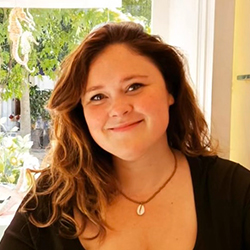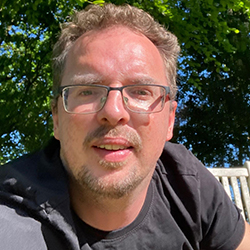The Team
Kara Rising, MSc

Kara is a PhD candidate under the supervision of Professor Michael Sweet at the University of Derby. Before starting her PhD at Derby, Kara worked for the coral reef restoration non-profit, SECORE International, where she learned about coral reef restoration through sexual propagation. In 2021, she received an MSc in Marine Environmental Management at the University of Exeter in Penryn, UK where her research was focused on how anthropogenic noise impacts mating behaviour of the shore crab, Carcinus maenas under Professor Martin Stevens. After graduation, she began working with Prof Mike Sweet at the University of Derby as a Research Technician in Coral Biology, helping to support research projects and maintain their Aquatic Research Facility (ARF). Now, during her PhD, Kara's work is on seagrass in the Red Sea, Australia and in the USA. Her research is focused on how to improve our understanding of seagrass health through global standardized monitoring, the seagrass microbiome and how it can be utilized to improve seagrass health and restoration efforts and on knowledge sharing around the world.
Professor Michael Sweet

Professor Sweet is a molecular ecologist based at the University of Derby, UK. He is head of the Aquatic Research Facility and the Nature-based Solutions Research Centre. He has a particularly interest in health and disease of marine organisms and his work has focused on corals, sponges, urchins, fish and most recently seagrass. More recently his teams attention has moved onto the importance of the microbiome in organism health and how (or even, if) these host-associated microbiota can aid in the fight against climate change. To do this, they assess shifts in the microbiome of healthy and stressed individuals (via means of histology and next generation sequencing, for example) and explore the effects such shifts have on the host of interest (visual appearance, transcriptomics, metabolomics, proteomics etc). Combined (with detailed bioinformatics and downstream analysis) we can then understand how individual microbes react with others in their community - under various scenarios. The overall goal is always to unpick the true importance and function of these microbes and what they do for the host and importantly what happens if these networks/interactions break down.